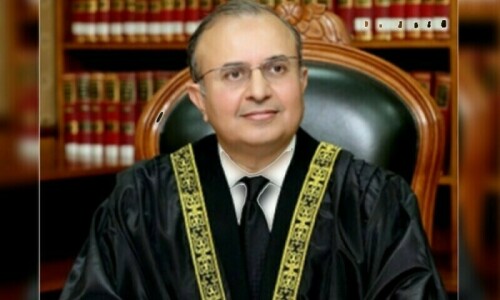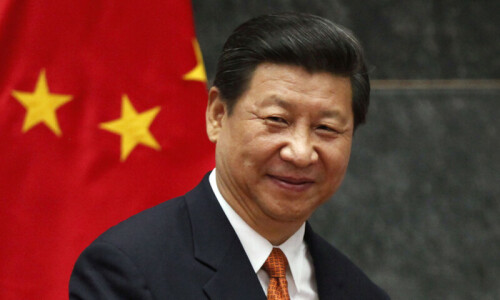IN order to tackle the plague of ‘mob justice’ that has spread across the country, the Council of Islamic Ideology on Wednesday once again proposed setting up special courts to try such cases. The CII had earlier made this suggestion both after last year’s episode of communal violence in Jaranwala, as well as the Priyantha Kumara lynching in 2021. The latest suggestion comes after violence in Sargodha last week linked to an alleged act of desecration. Two specific strands are visible in the brutal trend of mob justice in Pakistan. The first involves the highly sensitive issue of blasphemy. Often trivial matters or personal disputes are exploited and given a religious colour, and mobs are worked up by extremist elements to take ‘revenge’ against those involved in alleged desecration. Victims of this sort of violence include both Muslims and members of other faiths, and often investigations reveal that the allegations of sacrilege are completely fabricated. Yet the mob waits for no proof, and several innocent people have paid with their lives due to this zealotry. The second strand involves lynching of those accused of committing crime. Because the state has failed to control crime, agitated citizens often take it upon themselves to deliver punishment to suspected offenders. There has been a string of such lynchings in Karachi over the past few months, while the 2010 murder of two brothers by a mob in Sialkot was also the result of spurious robbery allegations.
Ideally, the criminal justice system and the existing courts should have the capabilities to investigate and try cases of mob violence. But because this alarming trend appears to be growing, special courts could be used to deal with the problem. If the state does establish ‘mob justice’ courts, they need to be staffed with regular judicial officials, and not members of the clergy. Moreover, they should deal with cases of alleged desecration, as well as mob violence committed in the name of punishing ‘criminals’. These institutions should not go the way of antiterrorism courts, which were set up to deliver ‘speedy’ justice, yet have failed to live up to their mandate. Legal remedies are just one aspect of the issue. To prevent mob violence from becoming the norm, and stop Pakistan’s descent into anarchy, society needs a long-term deradicalisation programme.
Published in Dawn, May 31st, 2024












































